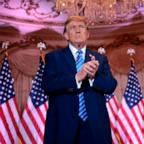Koreas to Meet for Second Summit
First summit took place in 2000, moved toward reconciliation.
Aug. 7, 2007 — -- The leaders of two Koreas will meet in Pyongyang for a three-day summit Aug. 28, the second-ever after the historic meeting in 2000 that made a major breakthrough in reconciliation between the North and South.
The surprise announcement was made simultaneously this morning. The South Korean presidential office explained how the agreement was reached through a full live-coverage news conference and North Korea's official Korean Central News Agency reported that the representatives of the two countries will meet in Kaesong for a preparatory session "in the near future."
Since the historic summit seven years ago also in Pyongyang, between then-South Korean President Kim Dae-Jung and North Korean leader Kim Jong Il, the current South Korean President Roh Moo-Hyun has been offering a diplomatic olive branch to hold a subsequent summit — as agreed upon in the first summit.
Roh has been repeatedly sending direct and indirect messages to the North that he is willing to hold the summit "anytime, anywhere," said presidential security adviser Baek Jong-chun.
In the two secret visits to the North by the head of the South Korean intelligence agency in late July and earlier this month, Kim Jong Il expressed that "the timing was right for a second meeting considering the state of relations between the two Koreas and the improved regional situation," according to Kim Man-Bok, the head of National Information Service.
Details will be planned out in the coming preparatory meetings.
Since the landmark summit in 2000, the two Koreas have been actively engaging in economic cooperation and family reunions split by the war more than a half a century ago.
The reconciliation efforts have been at odds with neighboring countries — including the United States, China, Japan and Russia — as those nations have been trying to strike a deal with the North that would get it to abandon its nuclear weapons program. The so-called six-party talks have been looking positive in recent weeks after North Korea shut down its Yongbyun nuclear reactor in exchange for oil.




